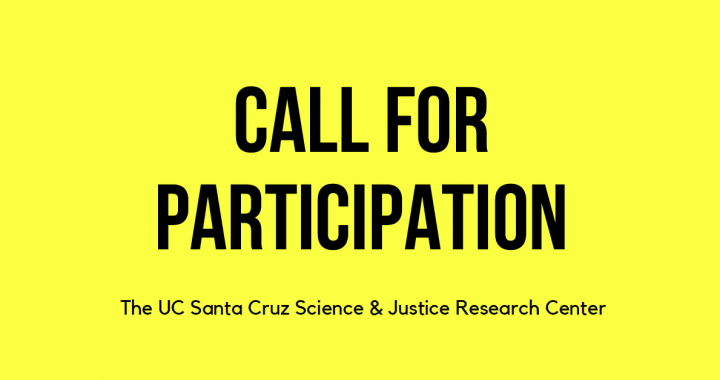The Science & Justice Research Center (SJRC) invites undergraduate students to apply as researchers for the Spring 2023 term. The SJRC will host up to 2 Individual Study students to collaborate on the LEED research project. The Individual Study course, can range from 2-5 units, be independent or group and will include directed readings, guided independent and collaborative research and project planning.
Available Spring 2023
Leadership in the Ethical and Equitable Design (LEED) of STEM Research: Up to 2 students will work directly with Sociology Professor Jenny Reardon’s team of researchers and collaborators at Columbia University, University of Washington, and Stanford to facilitate the creation of a cross-sector, cross-national effort to reformulate the meaning of good science in ways that center diversity, equity and inclusion (DEI), the ethical, legal and social implications (ELSI) of research, and the goals of advancing equity and justice. Specifically, students will work with the LEED Team to identify existing guidelines and best practices in a STEM area of interest to the student, and help to complete a systematic document review using qualitative research methods (including coding with MAXQDA software). This research will inform the development of LEED principles and practices.
Learn more in this campus news article: National Science Foundation grant will help establish ethics and equity best practices for emerging forms of science and technology and in this CellPress publication, “Trustworthiness matters: Building equitable and ethical science” that announces the collaborative project.
To Apply:
By Wednesday, March 8, 2023 at 12 noon, students should email (scijust@ucsc.edu) with their resume/CV and a very brief letter of interest. We’re excited to learn about you and teach you what we’ve learned from each other! Please let us know the following:
- your name, major(s), any faculty advisors.
- any experiences with related research, why you are interested in being involved, and how your curriculum, research, or career goals would benefit from the independent study.



